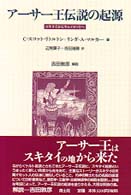Full Description
The Huguenots, in plain terms, were the Protestants of France. They were a sect which rose very soon after the preaching of the Reformation had passed from Germany into the neighboring countries. In France, they first excited the apprehensions and provoked the hostility of the Roman Catholic priesthood, during the reign of Francis the First. This prince, unstable as water, and governed rather by his humors and caprices than by any fixed principles of conduct—wanting, perhaps, equally in head and heart—showed himself, in the outset of his career, rather friendly to the reformers. But they were soon destined to suffer, with more decided favorites, from the caprices of his despotism. He subsequently became one of their most cruel persecutors. The Huguenots were not originally known by this name. It does not appear to have been one of their own choosing. It was the name which distinguished them in the days of their persecution. Though frequently the subject of conjecture, its origin is very doubtful. Montluc, the Marshal, whose position at the time, and whose interests in the subject of religion were such as might have enabled him to know quite as well as any other person, confesses that the source and meaning of the appellation were unknown. It is suggested that the name was taken from the tower of one Hugon, or Hugo, at Tours, where the Protestants were in the habit of assembling secretly for worship. This, by many, is assumed to be the true origin of the word. But there are numerous etymologies besides, from which the reader may make his selection,—all more or less plausibly contended for by the commentators. The commencement of a petition to the Cardinal Lorraine—"Huc nos venimus, serenissime princeps, &c.," furnishes a suggestion to one set of writers. Another finds in the words "Heus quenaus," which, in the Swiss patois, signify "seditious fellows," conclusive evidence of the thing for which he seeks. Heghenen or Huguenen, a Flemish word, which means Puritans, or Cathari, is reasonably urged by Caseneuve, as the true authority; while Verdier tells us that they were so called from their being the apes or followers of John Hus—"les guenons de Hus;"—guenon being a young ape. This is ingenious enough without being complimentary. The etymology most generally received, according to Mr. Browning, (History of the Huguenots,) is that which ascribes the origin of the name to "the word Eignot, derived from the German Eidegenossen, q. e. federati. A party thus designated existed at Geneva; and it is highly probable that the French Protestants would adopt a term so applicable to themselves." There are, however, sundry other etymologies, all of which seem equally plausible; but these will suffice, at least, to increase the difficulties of conjecture. Either will answer, since the name by which the child is christened is never expected to foreshadow his future character, or determine his career. The name of the Huguenots was probably bestowed by the enemies of the sect. It is in all likelihood a term of opprobrium or contempt. It will not materially concern us, in the scheme of the present performance, that we should reach any definite conclusion on this point. Their European history must be read in other volumes. Ours is but the American episode in their sad and protracted struggle with their foes and fortune. Unhappily, for present inquiry, this portion of their history attracted but too little the attention of the parent country. We are told of colonies in America, and of their disastrous termination, but the details are meagre, touched by the chronicler with a slight and careless hand; and, but for the striking outline of the narrative,—the leading and prominent events which compelled record,—it is one that we should pass without comment, and with no awakening curiosity. But the few terrible particulars which remain to us in the ancient summary, are of a kind to reward inquiry, and command the most active sympathies; and the melancholy.








